外研版 必修三 Unit2 Module 2 Developing and Developed Countries单词课件(50张ppt)
文档属性
| 名称 | 外研版 必修三 Unit2 Module 2 Developing and Developed Countries单词课件(50张ppt) |
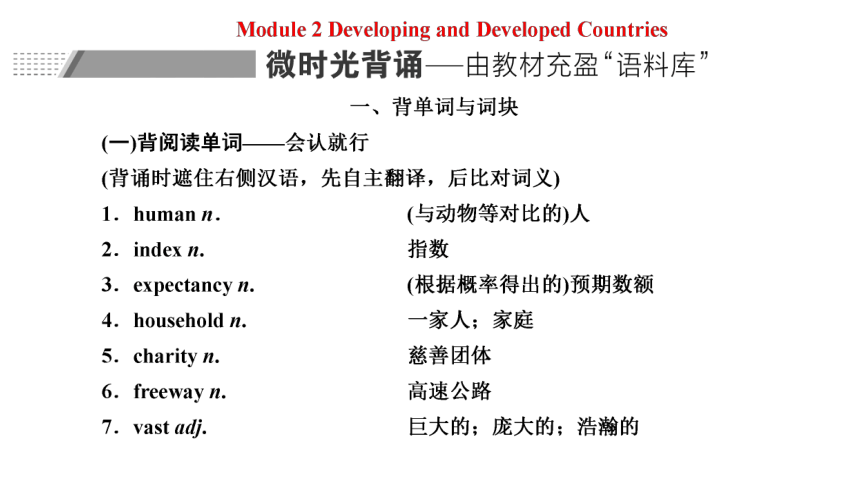
|
|
| 格式 | zip | ||
| 文件大小 | 2.8MB | ||
| 资源类型 | 教案 | ||
| 版本资源 | 外研版 | ||
| 科目 | 英语 | ||
| 更新时间 | 2023-03-29 00:00:00 | ||
图片预览

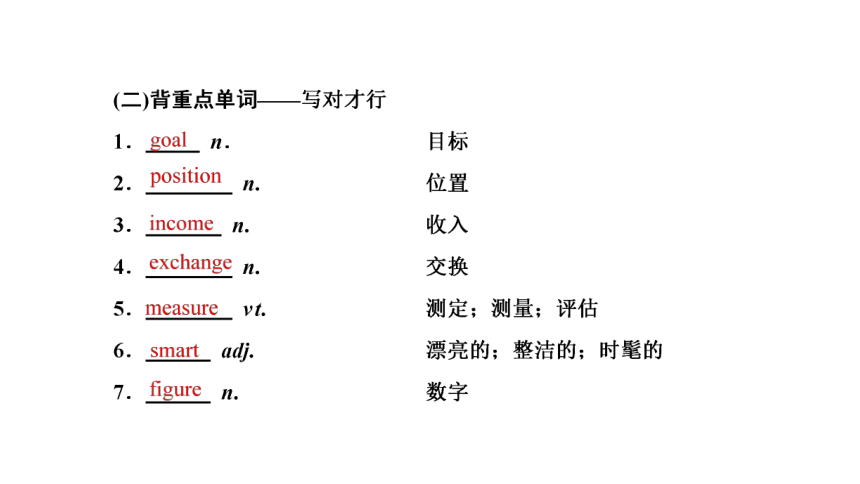
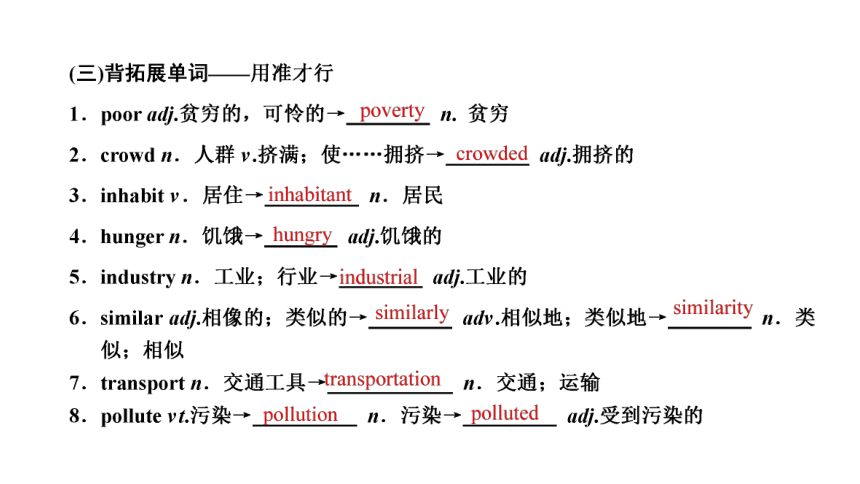
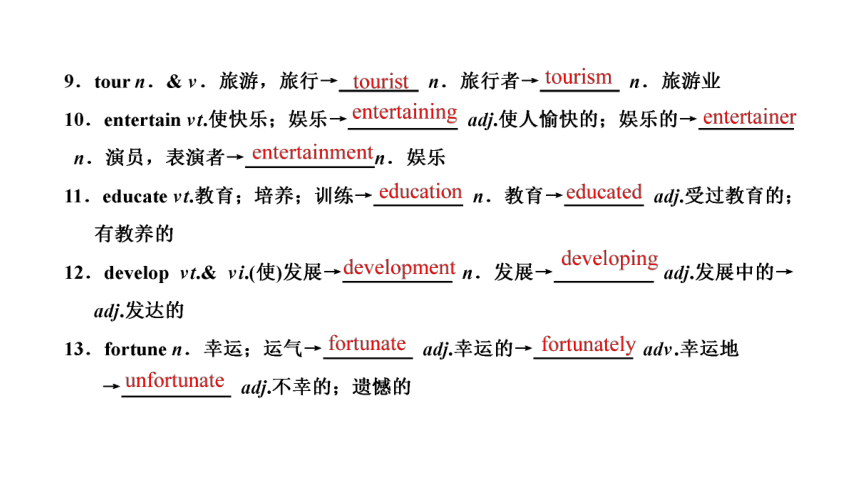
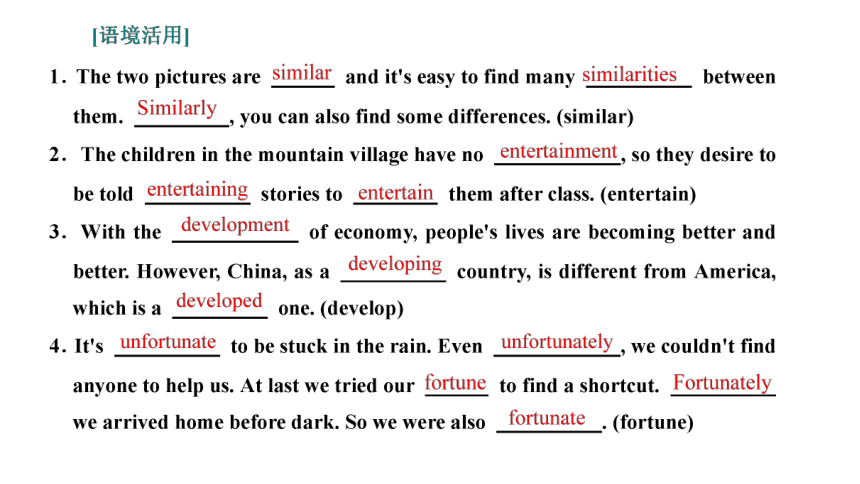
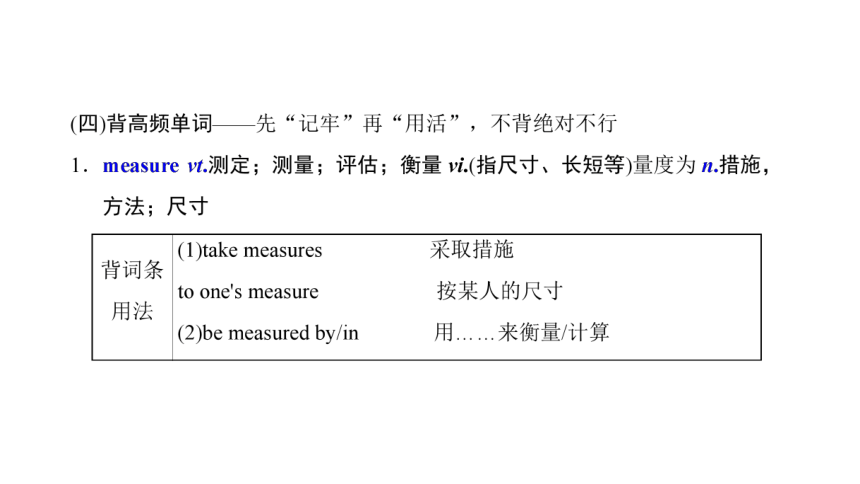
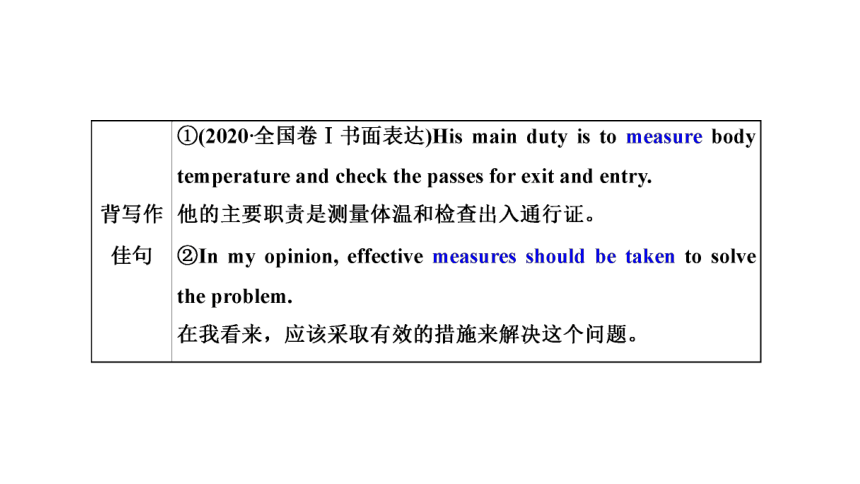
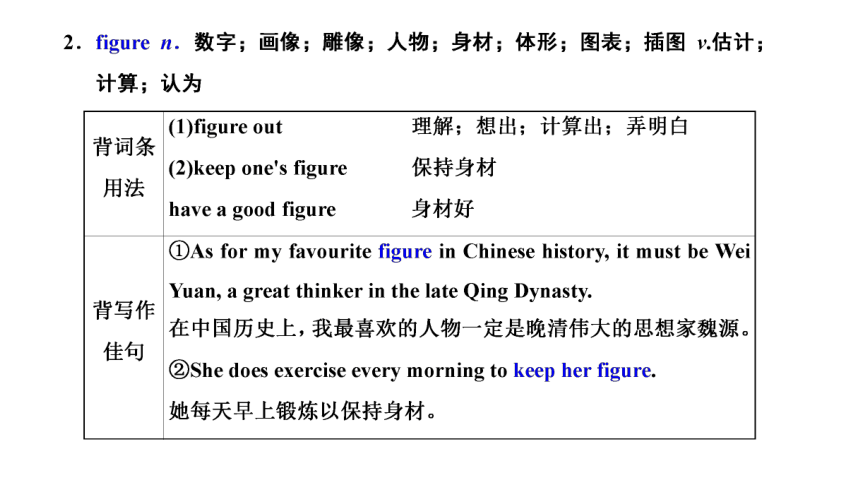

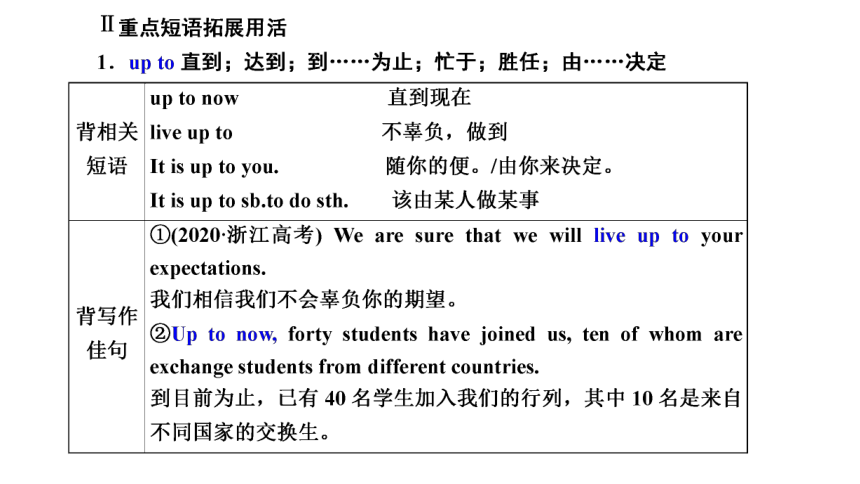
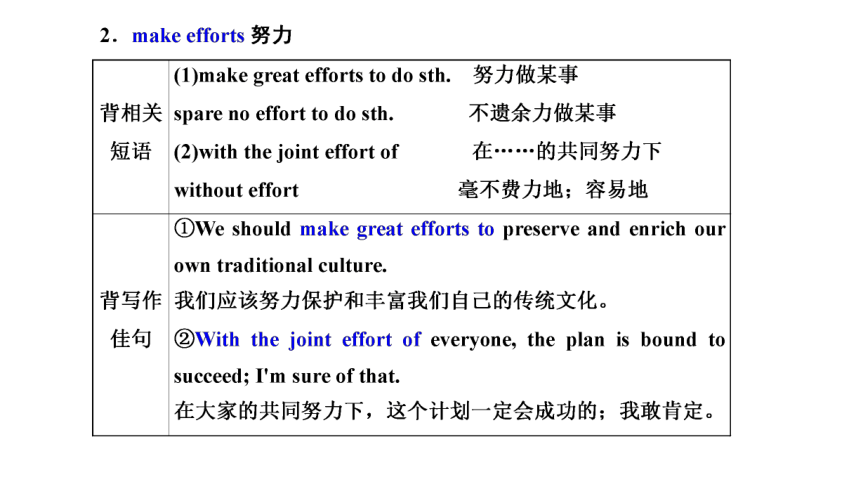
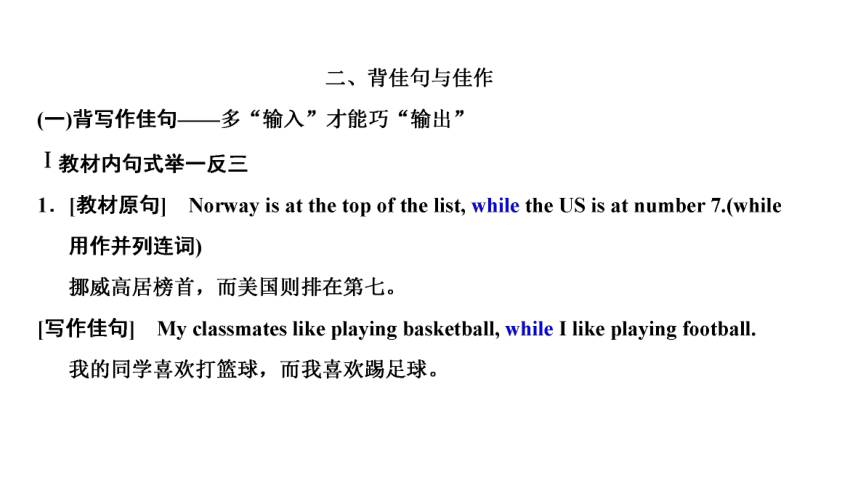
文档简介
(共50张PPT)
学案(三) 高考语篇的价值发掘——提升学科素养
2020·新高考全国卷Ⅰ·阅读理解C篇——对接课标主题:主要国家地理概况
In the mid-1990s, Tom Bissell taught English as a volunteer in Uzbekistan. He left after seven months, physically broken and having lost his mind. A few years later, still attracted to the country, he returned to Uzbekistan to write an article about the disappearance of the Aral Sea.
His visit, however, ended up involving a lot more than that. Hence this book, Chasing the Sea: Lost Among the Ghosts of Empire in Central Asia, which talks about a road trip from Tashkent to Karakalpakstan, where millions of lives have been destroyed by the slow drying up of the sea. It is the story of an American travelling to a strange land, and of the people he meets on his way: Rustam, his translator, a lovely 24-year-old who picked up his colorful English in California, Oleg and Natasha, his hosts in Tashkent, and a string of foreign aid workers.
This is a quick look at life in Uzbekistan, made of friendliness and warmth, but also its darker side of society. In Samarkand, Mr Bissell admires the architectural wonders, while on his way to Bukhara he gets a taste of police methods when suspected of drug dealing. In Ferghana, he attends a mountain funeral (葬礼) followed by a strange drinking party. And in Karakalpakstan, he is saddened by the dust storms, diseases and fishing boats stuck miles from the sea.
Mr Bissell skillfully organizes historical insights and cultural references, making his tale a well-rounded picture of Uzbekistan, seen from Western eyes. His judgment and references are decidedly American, as well as his delicate stomach. As the author explains, this is neither a travel nor a history book, or even a piece of reportage. Whatever it is, the result is a fine and vivid description of the purest of Central Asian traditions.
?好题不厌百回做,每做一次都有新发现
1.What made Mr Bissell return to Uzbekistan
A.His friends' invitation.
B.His interest in the country.
C.His love for teaching.
D.His desire to regain health.
解析:细节理解题。根据第一段第三句可知,出于对乌兹别克斯坦这个国家的兴趣,他回到了那里,故B项符合题意。
语篇解读:本文是一篇说明文。曾在乌兹别克斯坦当过志愿者的Tom Bissell 出于对这个国家的兴趣,几年后再次回到这里,并写了一本书叙述其在该国旅行中的见闻。本文对这本书进行了简要介绍。
答案:B
2.What does the underlined word “that” in paragraph 2 refer to
A.Developing a serious mental disease.
B.Taking a guided tour in Central Asia.
C.Working as a volunteer in Uzbekistan.
D.Writing an article about the Aral Sea.
解析:代词指代题。根据第一段第三句可知,Tom回到乌兹别克斯坦的目的是写一篇关于咸海是如何消失的文章。画线词“that”指代上文中提到的“写有关咸海消失的文章”这件事。
答案:D
3.Which of the following best describes Mr Bissell's road trip in Uzbekistan
A.Romantic. B.Eventful.
C.Pleasant. D.Dangerous.
解析:推理判断题。根据第三段尤其是第一句可知,Bissell在乌兹别克斯坦的旅行途中经历了很多事情。eventful“充满大事的,多变故的”符合文意。故选B。
答案:B
4.What is the purpose of this text
A.To introduce a book.
B.To explain a cultural phenomenon.
C.To remember a writer.
D.To recommend a travel destination.
解析:写作意图题。文章开头引出Tom Bissell写书的背景,从第二段到最后一段分别介绍了这本书的概要、主要内容和对这本书的评价,即全文围绕着这本书展开,目的就是向读者推荐这本书,所以选 A 项。
答案:A
?文本精读固基础,高考强调基础扎实
(一)由文本积阅读词汇
1.involve vt. ___________
2.hence adv. ____________
3.string n. ________________
4.architectural adj. _____________________
5.dealing n. ____________
6.tale n. ______
7.delicate adj. _______________
8.reportage n. _________
涉及;包含
因此;由此
一系列;一连串
建筑学的;建筑方面的
买卖;交易
故事
脆弱的;精致的
事件报道
B
B
D
A
(三)由文本积主题词块
1.lose his mind _________
2.end up doing ____________________
3.a road trip __________
4.a string of foreign aid workers ____________________
5.the architectural wonders _________
6.a taste of ______
7.the dust storms _______
8.historical insights ___________
失去理智
最终成为;最后处于
公路旅行
一系列的外国援助人员
建筑奇观
体验
沙尘暴
历史洞察力
(四)用文本词汇替换黑体词汇
1.The research lacks solid evidence, and therefore ( ), its conclusions are doubtful.
2.The college is playing host to a group of ( ) visiting Russian scientists.
3.She was very sorry about ( ) all the trouble she'd caused.
hence
a string of
saddened by
(五)在语境中悟微点语法
1.He left after seven months, physically broken and having lost his mind.
分析:句中并列分词短语physically broken and having lost his mind作状语。
[对点练] 单句语法填空/完成句子
①He is walking along the street, _________ (follow) by a sorry-looking dog.
②Please answer the question _________________.
请用另一种方式回答这个问题。
followed
using another way
2.Whatever it is, the result is a fine and vivid description of the purest of Central Asian traditions.
分析:句中Whatever it is是让步状语,whatever相当于_______________。
[对点练] 完成句子
①___________________________________,you must serve him.
不管他穿着什么衣服,你都必须接待他。
②______________________ when you want to smoke — do something else!
当你想吸烟时,无论你在做什么——做些别的事情!
Whatever/No matter what he is wearing
Whatever you're doing
no matter what
(六)在语境中赏表达之美
1.(赏结构之美)As the author explains, this is neither a travel nor a history book, or even a piece of reportage.
赏析:neither ...nor ...意为_____________________。连接并列主语时,谓语动词采用就近原则。句子用这个并列结构强调了这本书的独特之处,加深了读者印象。
[对点练——单句语法填空/完成句子]
①Neither the students nor the teacher _______ (know)anything about it.
②__________________________ am able to persuade my daughter to change her mind.
我妻子和我自己都不能说服我女儿改变主意。
“既不……也不……”
knows
Neither my wife nor I myself
2.(赏用词之美)Mr Bissell skillfully organizes historical insights and cultural references, making his tale a well-rounded picture of Uzbekistan, seen from Western eyes.
赏析:Bissell巧妙地(skillfully)将历史见解和文化参照(historical insights and cultural references)组织起来,从西方人的角度全面描绘了(a well-rounded picture)乌兹别克斯坦。数个形容词和副词运用准确,表意贴切。尤其是picture,句中采用了熟词生义——“描写”。
3.(赏意境之美)It is the story of an American travelling to a strange land, and of the people he meets on his way: Rustam, his translator, a lovely 24-year-old who picked up his colorful English in California, Oleg and Natasha, his hosts in Tashkent, and a string of foreign aid workers.
赏析:在陌生的国度旅行,遇到一位可爱的24岁的翻译人员(a lovely 24-year-old translator),房东(his hosts),外国援助工人(a string of foreign aid workers)。作者把如此多的人物浓缩到一个句子里,让读者身临其境,感受到乌兹别克斯坦人的友好和温暖。
“课下主题训练”见“课下主题训练(二)”
(单击进入电子文档)
谢 谢 观 看
学案(三) 高考语篇的价值发掘——提升学科素养
2020·新高考全国卷Ⅰ·阅读理解C篇——对接课标主题:主要国家地理概况
In the mid-1990s, Tom Bissell taught English as a volunteer in Uzbekistan. He left after seven months, physically broken and having lost his mind. A few years later, still attracted to the country, he returned to Uzbekistan to write an article about the disappearance of the Aral Sea.
His visit, however, ended up involving a lot more than that. Hence this book, Chasing the Sea: Lost Among the Ghosts of Empire in Central Asia, which talks about a road trip from Tashkent to Karakalpakstan, where millions of lives have been destroyed by the slow drying up of the sea. It is the story of an American travelling to a strange land, and of the people he meets on his way: Rustam, his translator, a lovely 24-year-old who picked up his colorful English in California, Oleg and Natasha, his hosts in Tashkent, and a string of foreign aid workers.
This is a quick look at life in Uzbekistan, made of friendliness and warmth, but also its darker side of society. In Samarkand, Mr Bissell admires the architectural wonders, while on his way to Bukhara he gets a taste of police methods when suspected of drug dealing. In Ferghana, he attends a mountain funeral (葬礼) followed by a strange drinking party. And in Karakalpakstan, he is saddened by the dust storms, diseases and fishing boats stuck miles from the sea.
Mr Bissell skillfully organizes historical insights and cultural references, making his tale a well-rounded picture of Uzbekistan, seen from Western eyes. His judgment and references are decidedly American, as well as his delicate stomach. As the author explains, this is neither a travel nor a history book, or even a piece of reportage. Whatever it is, the result is a fine and vivid description of the purest of Central Asian traditions.
?好题不厌百回做,每做一次都有新发现
1.What made Mr Bissell return to Uzbekistan
A.His friends' invitation.
B.His interest in the country.
C.His love for teaching.
D.His desire to regain health.
解析:细节理解题。根据第一段第三句可知,出于对乌兹别克斯坦这个国家的兴趣,他回到了那里,故B项符合题意。
语篇解读:本文是一篇说明文。曾在乌兹别克斯坦当过志愿者的Tom Bissell 出于对这个国家的兴趣,几年后再次回到这里,并写了一本书叙述其在该国旅行中的见闻。本文对这本书进行了简要介绍。
答案:B
2.What does the underlined word “that” in paragraph 2 refer to
A.Developing a serious mental disease.
B.Taking a guided tour in Central Asia.
C.Working as a volunteer in Uzbekistan.
D.Writing an article about the Aral Sea.
解析:代词指代题。根据第一段第三句可知,Tom回到乌兹别克斯坦的目的是写一篇关于咸海是如何消失的文章。画线词“that”指代上文中提到的“写有关咸海消失的文章”这件事。
答案:D
3.Which of the following best describes Mr Bissell's road trip in Uzbekistan
A.Romantic. B.Eventful.
C.Pleasant. D.Dangerous.
解析:推理判断题。根据第三段尤其是第一句可知,Bissell在乌兹别克斯坦的旅行途中经历了很多事情。eventful“充满大事的,多变故的”符合文意。故选B。
答案:B
4.What is the purpose of this text
A.To introduce a book.
B.To explain a cultural phenomenon.
C.To remember a writer.
D.To recommend a travel destination.
解析:写作意图题。文章开头引出Tom Bissell写书的背景,从第二段到最后一段分别介绍了这本书的概要、主要内容和对这本书的评价,即全文围绕着这本书展开,目的就是向读者推荐这本书,所以选 A 项。
答案:A
?文本精读固基础,高考强调基础扎实
(一)由文本积阅读词汇
1.involve vt. ___________
2.hence adv. ____________
3.string n. ________________
4.architectural adj. _____________________
5.dealing n. ____________
6.tale n. ______
7.delicate adj. _______________
8.reportage n. _________
涉及;包含
因此;由此
一系列;一连串
建筑学的;建筑方面的
买卖;交易
故事
脆弱的;精致的
事件报道
B
B
D
A
(三)由文本积主题词块
1.lose his mind _________
2.end up doing ____________________
3.a road trip __________
4.a string of foreign aid workers ____________________
5.the architectural wonders _________
6.a taste of ______
7.the dust storms _______
8.historical insights ___________
失去理智
最终成为;最后处于
公路旅行
一系列的外国援助人员
建筑奇观
体验
沙尘暴
历史洞察力
(四)用文本词汇替换黑体词汇
1.The research lacks solid evidence, and therefore ( ), its conclusions are doubtful.
2.The college is playing host to a group of ( ) visiting Russian scientists.
3.She was very sorry about ( ) all the trouble she'd caused.
hence
a string of
saddened by
(五)在语境中悟微点语法
1.He left after seven months, physically broken and having lost his mind.
分析:句中并列分词短语physically broken and having lost his mind作状语。
[对点练] 单句语法填空/完成句子
①He is walking along the street, _________ (follow) by a sorry-looking dog.
②Please answer the question _________________.
请用另一种方式回答这个问题。
followed
using another way
2.Whatever it is, the result is a fine and vivid description of the purest of Central Asian traditions.
分析:句中Whatever it is是让步状语,whatever相当于_______________。
[对点练] 完成句子
①___________________________________,you must serve him.
不管他穿着什么衣服,你都必须接待他。
②______________________ when you want to smoke — do something else!
当你想吸烟时,无论你在做什么——做些别的事情!
Whatever/No matter what he is wearing
Whatever you're doing
no matter what
(六)在语境中赏表达之美
1.(赏结构之美)As the author explains, this is neither a travel nor a history book, or even a piece of reportage.
赏析:neither ...nor ...意为_____________________。连接并列主语时,谓语动词采用就近原则。句子用这个并列结构强调了这本书的独特之处,加深了读者印象。
[对点练——单句语法填空/完成句子]
①Neither the students nor the teacher _______ (know)anything about it.
②__________________________ am able to persuade my daughter to change her mind.
我妻子和我自己都不能说服我女儿改变主意。
“既不……也不……”
knows
Neither my wife nor I myself
2.(赏用词之美)Mr Bissell skillfully organizes historical insights and cultural references, making his tale a well-rounded picture of Uzbekistan, seen from Western eyes.
赏析:Bissell巧妙地(skillfully)将历史见解和文化参照(historical insights and cultural references)组织起来,从西方人的角度全面描绘了(a well-rounded picture)乌兹别克斯坦。数个形容词和副词运用准确,表意贴切。尤其是picture,句中采用了熟词生义——“描写”。
3.(赏意境之美)It is the story of an American travelling to a strange land, and of the people he meets on his way: Rustam, his translator, a lovely 24-year-old who picked up his colorful English in California, Oleg and Natasha, his hosts in Tashkent, and a string of foreign aid workers.
赏析:在陌生的国度旅行,遇到一位可爱的24岁的翻译人员(a lovely 24-year-old translator),房东(his hosts),外国援助工人(a string of foreign aid workers)。作者把如此多的人物浓缩到一个句子里,让读者身临其境,感受到乌兹别克斯坦人的友好和温暖。
“课下主题训练”见“课下主题训练(二)”
(单击进入电子文档)
谢 谢 观 看
